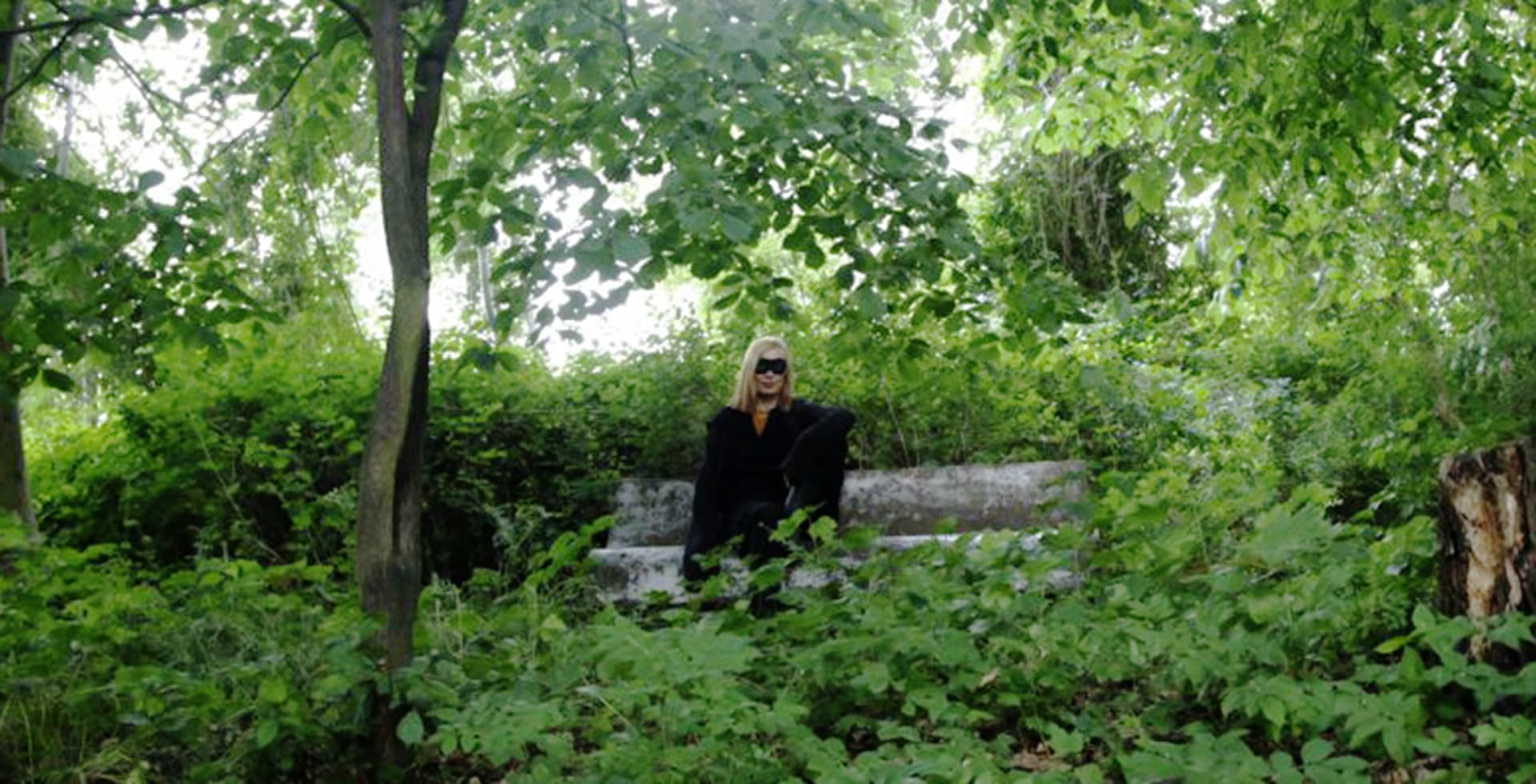
Gudrun Gut recalls her Depeche Moment
Gudrun Gut runs the Monika Enterprise label; is a founding member of Malaria!, Mania D, and Matador, as well as a solo artist; an original member of Einstürzende Neubauten and has been a lynchpin of experimental music in Berlin for more than 30 years. Title image by Mara von Kummer.
We were connected to Mute somehow—maybe because of Beate Bartel and with Malaria!, as well—we played with The Birthday Party and because of Neubauten; they were all signed to Mute. We weren’t, but we were still hanging out with Daniel [Miller], and Depeche Mode recorded their album here. West Berlin was pretty much an underground family situation between musicians. They were going to the bars and you saw them around.
For me, in those days, Depeche Mode were much too poppy for my appreciation—we were underground and they were pop—but they were part of the Mute family. In the 80s, the underground attitude was pretty arrogant. We were doing the good stuff, the ‘real’ stuff, and they were just doing pop music, you know it was a bit like that. I think the first time I actually listened to a Depeche Mode album was Violator, when I was on holiday with Beate in Ibiza and I forgot to bring my tapes. It was a CD, I think, and that was the only CD we had there. I listened to it over and over and I thought, “Wow, this is pretty cool, this is really good pop music,” and I liked the lyrics, too. I started really appreciating it. And then we just always went to the concerts and met them.
More like the end of the ’80s, I became friends with Martin [Gore]. After the gigs, we always were hanging out and he was always really interested in underground music, what was happening in Berlin. So, I showed him the clubs and record shops etc; he was great fun to hang around with. We had the best aftershow parties; my friends, his friends—it’s a kind of Depeche Mode gang. We were singing songs together and talking about music and things. And I did support DJ for his second solo album tour in Germany; I thought that was nice. We just got on—nothing else.
One story: There was this strange place, it was called the Kurfürstlicher Reitstall at Kurfuerstendamm. It was kind of for hookers, but not a brothel, but some were working there as ‘test girls’. When DM were in town, we occupied the place for our party because nobody came there anyhow. It was mostly empty. There was a big gang of people; we bought some liquor and just had our little Depeche Mode party there with the band and their friends. Martin, in those days, he liked to be undressed, so he sat there at the bar with just a hat on! [laughs] It was so cool! And he wanted us to undress, but nobody did. Or maybe Gareth Jones? No, I cant remember. Anyway, Martin did it and it was so natural! Everybody just partied; Marketa did a little Madonna playback show, everybody did something crazy. It was really fun. Its seems really far away now.
What I really like about them is that they are always open to what’s going on in the world, and I don’t mean the news. They care. I know Martin does; I gave him some Monika records and he really appreciates it, and he always wants to know what’s going on. He likes living culture, the underground, whatever’s happening. He doesn’t like all the same stuff as I do, but he wants to know. And I think you can see in the whole development of this band, they were always true to themselves, so they question everything. They are a pop act, they know that they are pop, but they try to be real in that. And they have the biggest hardcore fans; they grow with them. When you see a concert from Depeche Mode in Berlin, it’s really fun. Everybody sings the songs. They really mean something for the people. It’s touching and very special, I think.~
Published March 07, 2013. Words by Gudrun Gut.
